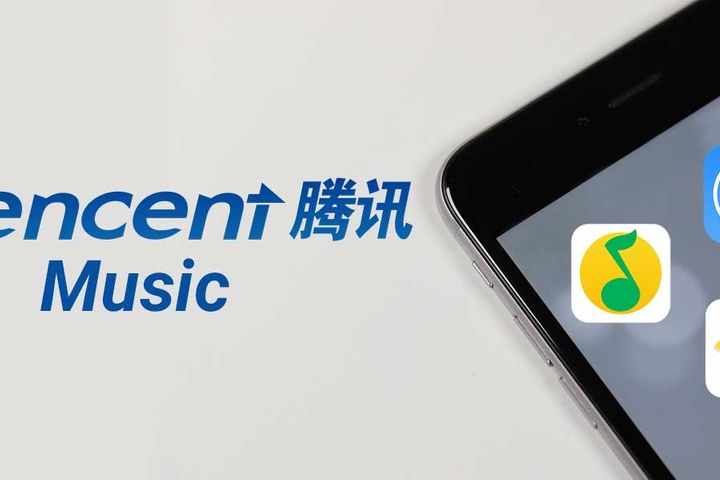 Spotify and Tencent Music Equity Swap Could Hit Record Labels and Fans Hard
Spotify and Tencent Music Equity Swap Could Hit Record Labels and Fans Hard(Yicai Global) Dec. 15 -- Music streaming service Spotify announced a joint investment plan with Chinese internet behemoth Tencent Holdings Limited [HKG:0700] and its subsidiary Tencent Music Entertainment Group (TME) on December 8., a mutually beneficial collaboration for the companies, yet the deal will undoubtedly affect the global music market to some extent.
Spotify and TME will acquire minority stakes in each other in cash. In addition, Tencent will invest in Spotify through secondary purchases. Thus, Spotify will hold a minority stake in TME, and both Tencent and TME will hold minority stakes in Spotify.
However, for record labels, another important stakeholder in the music market, this might not be good news.
The deal presents copyright issues for record labels. This month, the Wall Street Journal reported the two companies were discussing trading plans, planning to hold up to a 10 per cent stake in each other. Under this model, the two music-streaming platforms would have the collective clout to negotiate licensing deals with major record labels in the future, an industry insider said.
In addition, Spotify and TME are both planning to IPO in 2018 and to sweeten the deal for prospective investors, they have already sewn up licensing agreements with three of the world's-biggest major labels. This of course necessitated spending a huge sum to access the extensive back catalogs of Universal Music, Warner Music and Sony Music Entertainment.
To date, paying large licensing fees has hindered them from profiting. Spotify has set aside 70 per cent of its gross revenue for royalties. Therefore, Spotify and TME must prove that copyright issues will not drag them from making a profit in the future, to obtain recognition of the capital market.
The deals TME has with Sony Music Entertainment and Warner Music, while exclusive, will expire in December and August of next year, making it a pressing issue for TME to renegotiate the copyright deals in the near future.
Royalty payments and copyright issues aside, the presence of Spotify and TME on the upstream industry will further damage the core interest of record labels.
Spotify were accused earlier this year of creating fictional artists, with many playlists dominated by similar-sounding muzak pieces entitled 'Peaceful Piano', 'Deep Focus' or 'Music for Concentration'. In reality, these were the product of Swedish-based studio Epidemic whose music is largely used in the background of TV productions or in the videos of YouTube creatives. Real or not, these mood pieces proved extremely popular with the public, racking up an estimated 520 million plays across the Spotify platform.
The company also acquired online collaborative recording and production studio Soundtrap, showing their determination to march towards the upstream market.
Soundtrap allows users can learn to sing and play music, record and create their own works. It is a one-stop platform where musicians can complete a work from beginning to end thus creating a new creative ecology, covering the process from content production to release.
This of course gives Spotify complete control and access to this newly-minted content. In common with Spotify, TME is also extending its business to the upstream market. In an interview in September, TME Vice President Hou Dey ang said their own WeSing was an attempt to produce and then control content, which played a key role in their market competition.
The first problem is how to make the production chain free of obstructions and how to continuously stimulate users' creative enthusiasm. WeSing was learning packaging from record labels, in order to create a closed music loop from ordinary consumers to the professional, Hou said.
Whether Spotify and TME will cooperate to expand the upstream market after the share swap should be further examined. Moreover, the potential monopoly caused by a combination of Spotify and Tencent, which has trounced the competition domestically, may have an adverse impact on the diversification of content market, which the record labels really need, not to mention what consumers desire.
Spotify is the world's largest digital music platform. Internet colossus Tencent is also seeking greater influence in the global music market. In China, TME is already established as the largest digital music platform. Tencent is focused on expanding its music streaming influence in Southeast Asia through its Joox platform.
In May, Tencent also led American social music company Smule in its H-round funding. There is no doubt that the cooperation of Spotify and Tencent will aggravate the tendency of a music-streaming oligopoly.
Record labels need a prosperous market environment, which relies on diverse musical works, including not only excellent sellers, or universally popular ones, but also others, known as long tail musical works.
Due to the limited resources and streams of monopoly platforms, long tail music works will be neglected more while the degree of monopoly in the market is aggravated. This could make the market illusory, with the lead market looking very prosperous, yet disguising the rot that the lack of diversity in content will bring.